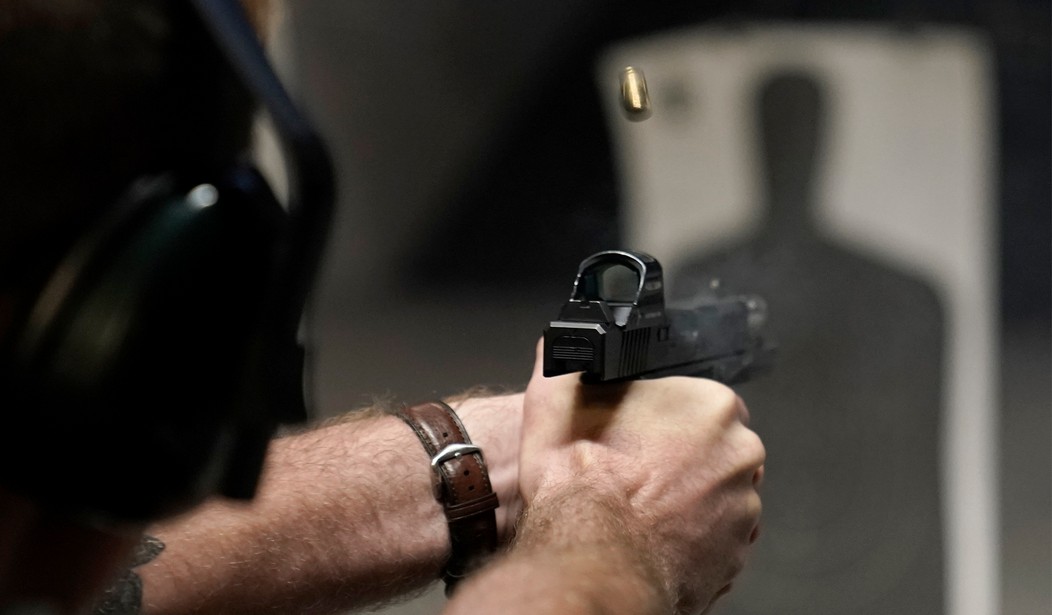Democrats will stop at nothing to go after the Second Amendment, including passing legislation to require credit card companies to monitor purchases made by law-abiding citizens at gun stores.
While legislation of this sort has received intense pushback from Republicans and pro-Second Amendment groups, three credit card companies have confirmed that they will move forward with flagging gun purchases in one Democrat-led state.
Mastercard, American Express, and Visa are moving forward with plans to make a merchant code available for firearm and ammunition retailers to comply with California law, CBS News reported Monday.
Reportedly, the new California law will allow banks to potentially track “suspicious” gun purchases and report them to law enforcement. The codes will allow banks and credit card companies to “detect purchase patterns” with guns and ammunition. Currently, gun shops are categorized with other retailers like sporting goods stores (via CBS News):
Mastercard, Visa and American Express initially agreed to implement a standalone code for firearm sellers, but later paused their work on it after receiving blowback from Second Amendment advocates concerned tracking gun purchases would infringe on the rights of legal gun owners.
Gun control activists hope the code, approved by an international organization in 2022, can be used as a tool to help identify suspect purchases and, consequently, stop gun crime, including mass shootings. Proponents say a code for firearms merchants would allow banks and credit unions to alert law enforcement of potentially suspicious purchasing patterns in the same way they already flag other types of transactions, such as those that suggest identity theft or terrorist financing.
Reportedly, at least seven “Republican-controlled” state legislatures have banned this code, while nine others are considering similar legislation.
Recommended
Documents obtained by CBS News show that executives from Mastercard, Visa, and American Express wrote to congressional Democrats to assure them that the code would be available to retailers in California by May 2025.
"With respect to the [firearm merchant code], there continues to be a tremendous amount of regulatory and legislative uncertainty," wrote Visa senior vice president Robert B. Thomson III, adding that the company will endeavor to comply with the requirements in California. "Given the conflicting state laws on this topic and the likelihood that other states will enact legislation to either restrict or mandate the code, our implementation pause remains in effect."
Sen. Elizabeth Warren (D-MA) said, "It's a start that credit card companies have committed to comply with the [merchant code] law in California, but we need implementation across the country if we're going to do everything we can to prevent gun violence."
"The sooner credit card companies and banks begin using the new [merchant code] for gun retailers and tracking suspicious gun purchases, the more mass shootings we will have a shot at preventing before they occur," Warren added.
In September 2022, Townhall reported how two dozen Republican attorneys general warned the three major credit card companies to not move forward with plans to add a new merchant code for gun-related purchases. In the letter, the attorneys general describe how the new policy does not respect Americans’ Second Amendment rights:
The new code will not protect public safety. Categorizing the constitutionally protected right to purchase firearms unfairly singles out law-abiding merchants and consumers alike. First, efforts to track and monitor sales at gun stores would only result in vague and misleading information. This categorization would not recognize the difference, for example, between the purchase of a gun safe and a firearm. Nor would it capture firearm purchases made at department stores, resulting in arbitrarily disparate treatment of “gun store” merchants and consumers.
More importantly, purposefully tracking this information can only result in its misuse, either unintentional or deliberate. Creating and tracking this data only matters if your institutions are considering using that information to take further, harmful action—like infringing upon consumer privacy, inhibiting constitutionally protected purchases by selectively restricting the use of your payment systems, or otherwise withholding your financial services from targeted “disfavored” merchants.
And generating a “list of gun buyers” creates the obvious risk that law-abiding consumers’ information will be leaked, discovered, hacked, or otherwise obtained and misused by those who oppose Americans exercising their Second Amendment rights.

























